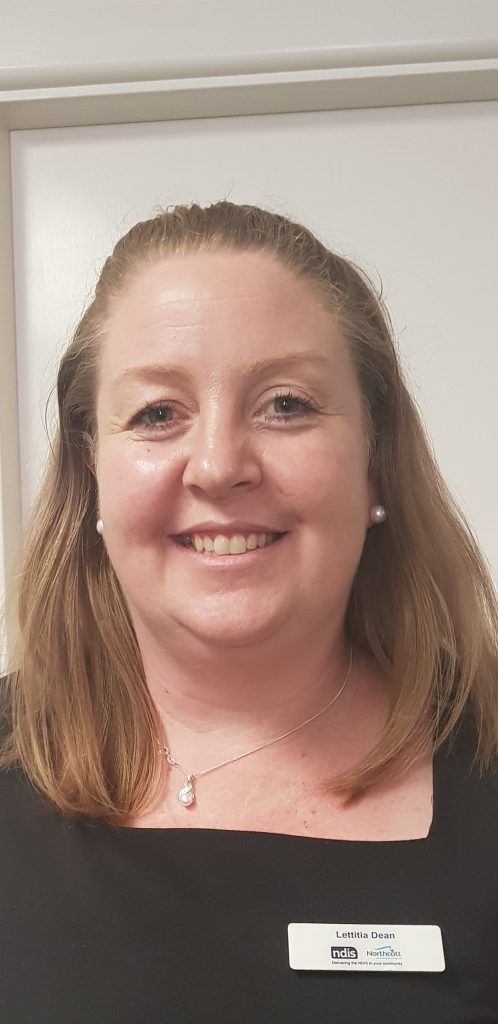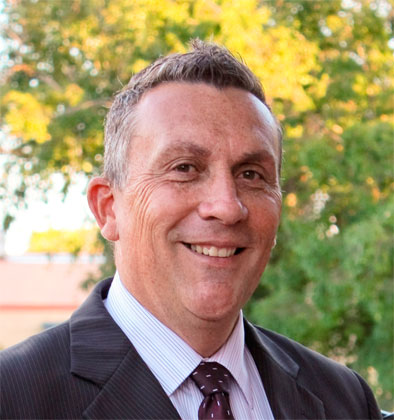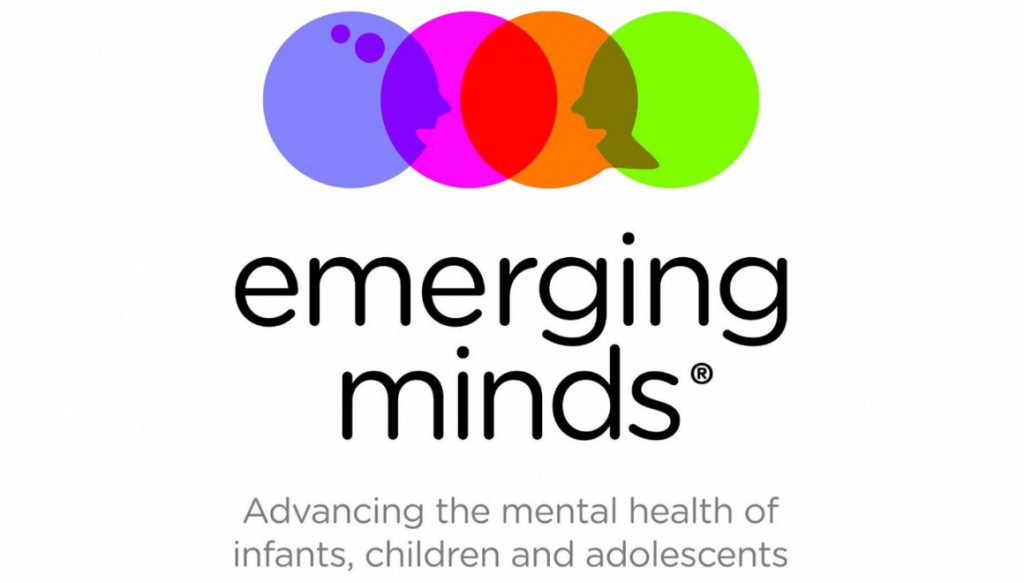
Vicki Bitsika AM
Biography
Professor Vicki Bitsika has specialised in the assessment and treatment of challenging behaviour in people with neurodevelopmental disability, mental ill-health, and behavioural disorder for over 30 years. She is a Clinical Psychologist who has consulted in schools and Human Service facilities in Australia and Internationally, with a focus on the development of training services for disability and mental-health professionals, and techniques for addressing complex behavioural difficulties. She was Founder and Director of the Centre for Autism Spectrum Disorder, at Bond University from 2010 to 2019, before joining Biomedical Sciences at UNE.
Professor Bitsika was awarded an Australian Learning and Teaching Council citation in 2009 for “exemplary translation of clinical practice into development of hands-on, innovative, and student-focused curriculum and teaching techniques in Behaviour Management”. She received a Winston Churchill Fellowship in 2010 to investigate specialised intervention technologies for children and adolescents with Autism Spectrum Disorder in the USA and UK. In 2016, Professor Bitsika was made a Member of the Order of Australia (AM)for “significant service to tertiary education in the field of Autism Spectrum Disorders, as an academic, and as a supporter of people with disabilities”.
Presentation: What we know about anxiety and its impacts on daily functioning in children with ASD
Workshop: Building low-anxiety learning contexts for children with ASD

Dr Sarah Verdon, PhD
Biography
Dr Sarah Verdon graduated with her PhD from Charles Sturt University in December 2015. She is a Senior Lecturer and Research Fellow in the Faculty of Science at Charles Sturt University. Sarah is a speech pathologist and early childhood researcher who is passionate about embracing the diversity of children from different cultures, languages, geographic areas, socioeconomic backgrounds and levels of ability to create equitable opportunities for all children to have a strong start to life and reach their full potential. Sarah specialises in research regarding children’s speech, language and literacy development in culturally and linguistically diverse contexts. Sarah’s PhD research across five continents resulted in the development of the Principles of Culturally Competent Practice, a framework to guide culturally responsive practice when supporting culturally and linguistically diverse children with communication needs. These principles have since been adopted as the basis of scientific research and professional development programs across a range of health and education disciplines both in Australia and around the world including the US, New Zealand, China, South Africa, Canada and Malaysia.
Sarah is co-chair of The International Expert Panel on Multilingual Children’s Speech consisting of 60 experts in the fields of multilingualism and child speech from 30 different countries to support professional practice with children from culturally and linguistically diverse backgrounds. She oversaw the development the Speech Pathology Australia national position paper and clinical guidelines for “working in a culturally and linguistically diverse society” and also hosts the “Talking Children Podcast”. Sarah also applies her research and skills in a volunteer capacity as a director of the Trinh Foundation Australia, an Australian-based international not-for-profit organisation whose mission is to develop speech therapy in Vietnam.
Supporting children’s early communication development through culturally responsive practice

An understanding of children’s communication development across contexts is essential for supporting their development social, emotional and academic development and to prepare children to engage in formal education. This is true for both monolingual and multilingual children. The task is seemingly more complex when children are from culturally and linguistically diverse backgrounds as professionals are less confident in understanding and supporting multilingual communication development. It is known that people from non-dominant language and cultural backgrounds are less likely to access health services. This can be due to differences between professionals’ and families’ cultural approaches to communication, health, disability, and child rearing. It can also be due to families’ lack of awareness of the positive impact that early intervention services can have upon a person’s participation in society, education and the workforce. The Principles of Culturally Competent Practice provide a guiding framework for professionals to identify and address potential barriers to enhance families’ engagement in, and experience of, services to support their children’s early development and long term outcomes. This presentation will unpack these Principles and apply them to real world settings optimise effective, culturally responsive practice with increasingly diverse caseloads.

Zizi Charida – Community Minds
http://www.communityminds.org.au/
Zizi Charida is the Founder and Director of Community Minds, a not-for profit organisation based in Sydney, Australia, that works with community groups, schools, businesses and organisations, in developing programs that enhance, develop and build connected, inclusive and stronger communities. Community Minds has also designed its own programs that foster genuine community development by placing citizens at the centre of communities not services, since community members are experts in their lives and communities.
Zizi has initiated projects, events and school-based programs that promote Asset Based Community Development (ABCD) approach and principles and is one of the main training areas Zizi provides organisations. Zizi also runs training and workshops on Appreciative Inquiry (AI) across Australia and abroad, teaching teams, organisations and community groups about AI mindset and methodology, applying it to different contexts with the ultimate aim of facilitating positive change in any human system, be it a group, organisation or a whole community.
Presentation: Towards hope: the stories we build for our clients and their families.
Workshop 1: The Power of Appreciative Inquiry
Transforming communities through powerful questions and conversations. Appreciative Inquiry is used to generate change through igniting the collective imagination and promoting dialogues that can help collectively shape people’s realities and their vision for the future.
In the words of its primary originator, Dr. David L. Cooperrider of Case Western Reserve University, AI asks us to pay special attention to “the best of the past and present” — in order to “ignite the collective imagination of what might be.”
Appreciative Inquiry invites us to reflect on the past to build the best possible future for our communities. To do this we need to know what’s has worked well in the past and what our strengths are to imagine something better for our organisations and communities.
In this 1-hour session we start with a brief overview of AI and its links to asset-based approach to community development verse a deficit-based approach. This leads to a conversation about the power of positive questioning and storytelling as effective ways to engage stakeholders in change efforts, including a guide conduct appreciative interviews, and the impact of positive questions.
*Presentation & handouts will be provided
Workshop 2: Creating Citizen Driven Communities: using an Asset Based Community Development Approach
A 1-hour introductory workshop for community enthusiasts and community builders with an interest and commitment to Asset Based Community Driven (ABCD) philosophies and methodologies and, who want to gain a deeper understanding of how to utilise the ABCD approach to build and strengthen community from the inside out.
The workshop will provide participants with the theoretical grounding to shift the mindset from ‘client’ to ‘citizen’ and motivate residents to start asking the right questions around what they can do for themselves and their community.
Participants will be engaged in a fun ‘Head, Heart & Hands’ mapping exercise, a great tool to discover the skills and assets of individuals, for the purpose of linking them to community efforts and initiatives.
The workshop will provide an overview of the philosophy, value and practice of ABCD –- Shifting the development mindset from needs and deficiencies to assets and capacities. Focus on assets rather than deficiencies. – Community assets: overview of assets and asset mapping
*Presentation & handouts will be provided

Rosemary Signorelli – Senior Early childhood Counsellor / Project Officer at STARTTS
Rosemary is a counsellor, psychotherapist, music therapist, and Occupational Therapist. She has over 12 years of experience at STARTTS working with refugees and asylum seekers and has worked with clients across the lifespan, and in a variety of contexts. This has included work with 0-5 year olds with special needs, and with typically developing children. She has also provided OT and music therapy services to children and adults with special needs, for both community service organisations and in private practise.
Previously, Rosemary worked as a senior manager in the aged and community sector, and as a community programmes policy manager for a national organisation. She applies insights and experience from all these areas in her early childhood work. As a music therapist she has been a session leader for the Sing and Grow programme, and has also collaborated with Playgroup NSW to provide a Sing and Grow programme in the Fairfield area in collaboration with STARTTS.
Rosemary has recently become a registered COSP educator, and has previously worked for 6 years as a Kindermusik educator. She has managed many community and aged care services with funding grants from Commonwealth and State Health Departments, and also the WELL programme from DET.
Presentation: Understanding the impact of direct and transgenerational traumatic experiences on 0-6 year olds and their caregivers from refugee-like backgrounds.
Workshops: Addressing the challenges in early childhood trauma recovery, enhancing development and school readiness with 0-6 year olds from refugee-like backgrounds.

Lettitia Dean – Northcott ECEI NDIS
Lettitia Dean is a Community Capacity Building Facilitator from Northcott, who are assisting to deliver the Early Childhood Early Intervention (ECEI) Pathway as a Partner in The Community, with the National Disability Insurance Scheme (NDIS).
Lettitia has extensive experience and knowledge from her decade within the Early Childhood Industry, working with children 0-6years. Lettitia is passionate about communicating the needs of children and their families making sure they are equipped with the information and services they need to access all supports required to build capacity for themselves and our communities.
Workshop: Supporting families, who have children with developmental and diagnostic concerns, to access the NDIS through the ECEI approach
During this one hour workshop we will explore the Early Childhood Early Intervention pathway, and how we can support families that have concerns surrounding their childs development.
Understand that children under 6 do NOT require a diagnosis to access the pathway. And how Northcott are able to assist you in building the capacity for your community, centre and families. This will be followed by Q&A time

Paul Callaghan – CEO/Founder Callaghan Cultural Consulting
Paul Callaghan belongs to the land of the Worimi people which is located one hour north of Newcastle, NSW.
Paul has held a number of senior executive positions in his career such as Institute Director, New England TAFE with responsibility for 23,000 students, 1,200 staff and an annual budget around $60million and Chief Executive Aboriginal Housing Office.
He has qualifications in the disciplines of surveying, drafting, accounting, economics, training, executive leadership, emotional intelligence, company boards, executive coaching and is currently undertaking a PhD at University of New England. His most important learning however, has been through going bush with Elders.
In addition to consultancy services, Paul is a motivational speaker, a story teller, a dancer and an author. In 2014 he published a book entitled iridescence – Finding Your Colours and Living Your Story and has recently been short listed for the inaugural Daisy Utemorrah Award for his soon to be published novel Coincidence.
Presentation: Partnering with Aboriginal Agencies. Making it Real.
Most organisations are aware that Aboriginal people want things done with them not too them. A cornerstone of this shift in practice is the need to collaborate and engage with community. An ability to create effective partnerships with Aboriginal agencies is a positive way to support this process. This presentation will provide audience members with insights for further exploration with local Aboriginal organisations to understand local contexts and enable the development of partnerships that make a real difference.
Themes covered will include:
- Partnerships – Why are they important
- NSW Aboriginal community – current status
- Cultural competence – the importance of knowing the story
- Understanding your brand
- How to generate effective engagement
- Understanding the differences between Aboriginal value systems and Western value systems
- Understanding the differences between Aboriginal leadership and Western leadership
Workshop: Culturally Embedded Support Plans that Make a Difference
Support plans and case plans are an important tool in mapping actions that will support a client. In most instances, the support plan is organisation centric, created as a template that is meant to suit a diverse range of clients. This approach doesn’t work for Aboriginal clients. This workshop will provide participants with a new way of looking at how to identify the support needs of an Aboriginal client. The model used is embedded with culture throughout and embraces a whole of life philosophy.
Themes covered will include:
- The House of Wellbeing
- The Concept of Dreaming Path (identity and purpose)
- The Dreaming Tree – Soil (what have been growing in?)
- The Dreaming Tree – Roots (life goals, values, spirituality and beliefs)
- The Dreaming Tree – Branches and Leaves (folly of rushing, boredom, change, making decisions, choice, feeling empowered, managing stress, managing expectations, resilience, doing your best, work/life balance)
- The Dreaming Tree – Trunk (learning, health, mentoring, spirituality, fellowship, family, friendship, special occasions, recreation, meditation, embracing your story, giving and sharing)

Emerging Minds – Tai Luani https://emergingminds.com.au/
For over 20 years Emerging Minds has been dedicated to advancing the mental health and emotional wellbeing of Australian infants, children, adolescents and their families. The organisation now leads the National Workforce Centre for Child Mental Health, delivered in partnership with the Australian Institute of Family Studies (AIFS), the Australian National University (ANU), the Parenting Research Centre (PRC) and the Royal Australian College of General Practitioners (RACGP).
Emerging Minds develops mental health policy, services, interventions, training, programs and resources in response to the needs of professionals, children and their families. We partner with family members, national and international organisations to implement evidence-based practice into the Australian context. Our resources are freely available at this web hub.
Presentation: Keeping Children’s Mental Health in Mind
Infants and children, more than any other age group, are shaped and influenced by a range of social, biological and environmental factors, all of which go into making the whole child. Their mental health and wellbeing cannot be separated from the broader context of their lives. Children’s health and development occurs within multiple contexts, including their own individual characteristics, their family, school, local neighbourhood, and community environments.
Each of the parts at different levels of the ecological system interact with each other, influence each other, and support each other. Therefore, changes in one area of a child’s life can influence other areas. The child’s family relationships (including extended family and carers), are considered the most influential factors in a child’s life.
Adult needs and views can often dominate an intervention. Attending to the experience of adults as parents and to the needs of their children requires deliberate attention and effort at every stage. By focusing on identifying vulnerable children and families, you or your organisation can engage with parents and work together with families so that the mental health of children is considered.
Workshop: Intro to Engaging Parents About Children’s Social and Emotional Wellbeing
This workshop will introduce you to ways that you can actively and effectively engage with parents about their children’s social and emotional wellbeing by strengthening practitioners understanding of factors and circumstances that impact on parents’ family and social relationships and their relational capabilities.
This workshop is for practitioners working in services focused on infants and children and services focused on parents and guardians in the health and welfare sectors, particularly designed for those employed in service settings where:
- parenting is not a routine focus of support or treatment (i.e. an adult-focused service)
- active partnership with parents and children’s mental health are not a routine focus of support or treatment (i.e. a child-focused service)
- clients are parents in Parenting Support programs
You will strengthen your understanding of factors and circumstances that impact a child’s social and emotional wellbeing and the role you can play as a practitioner by engaging with and supporting a parent in their parenting role to support a child’s mental health.
